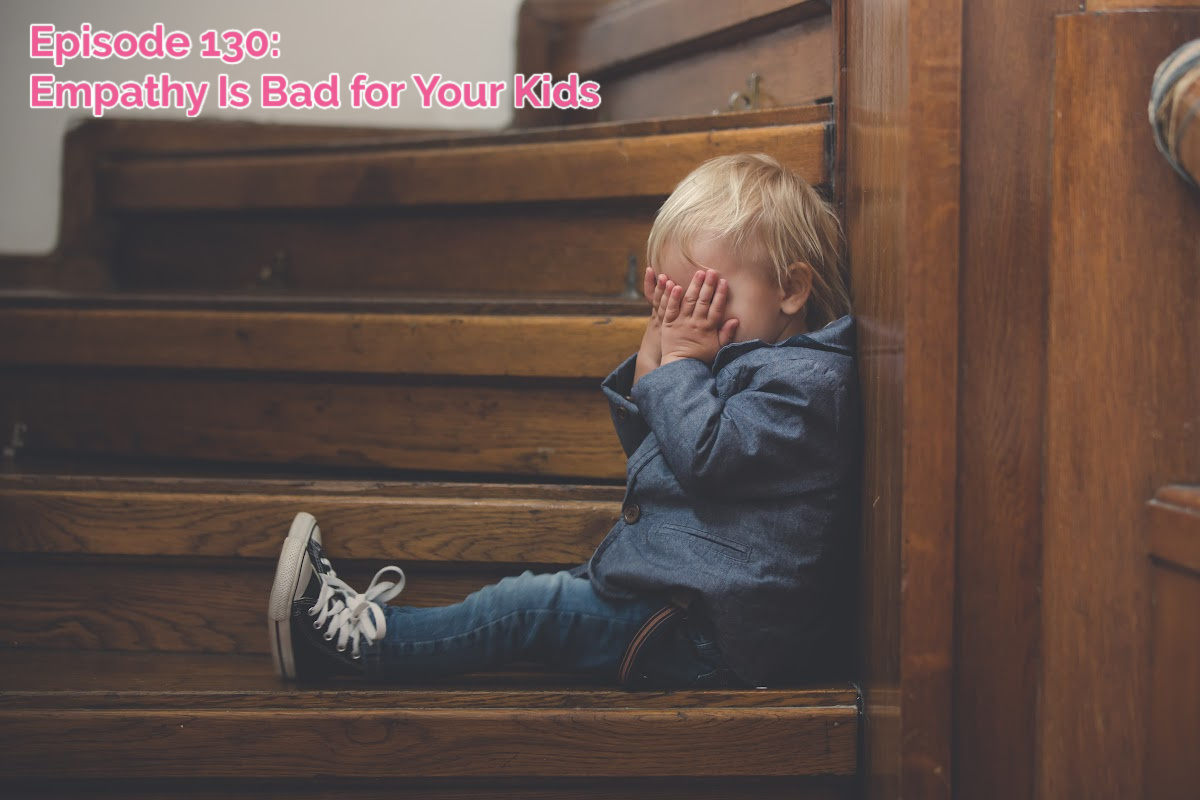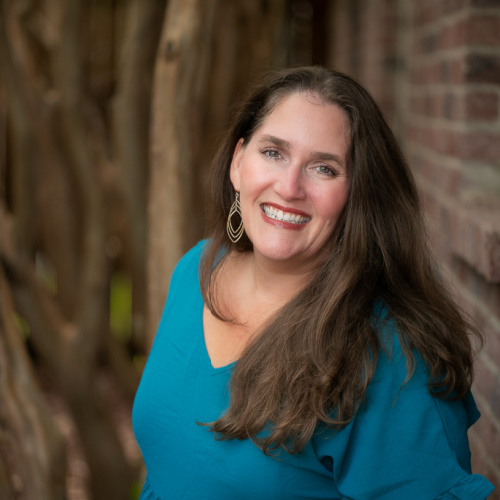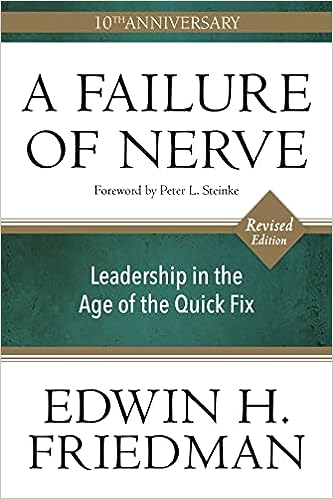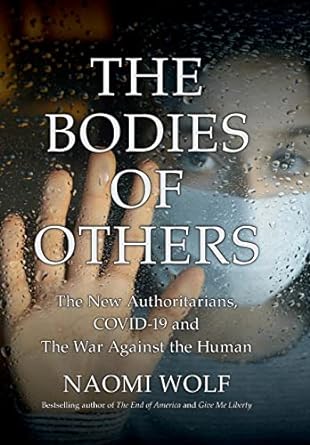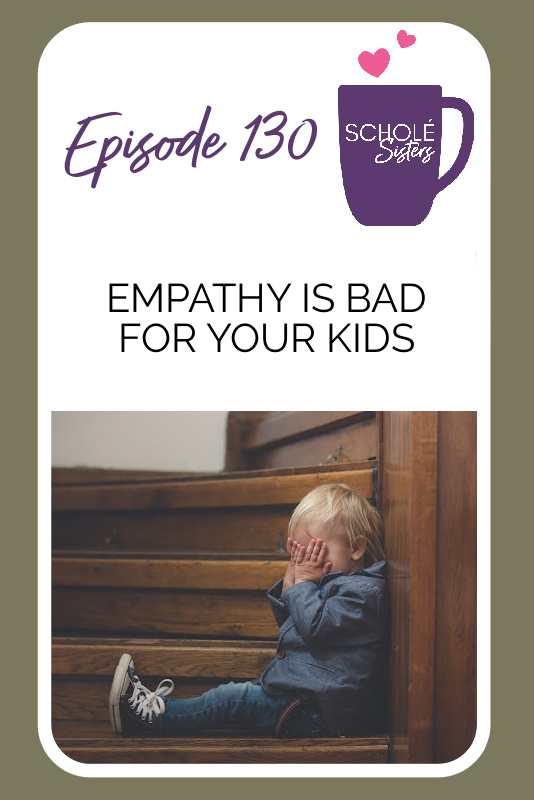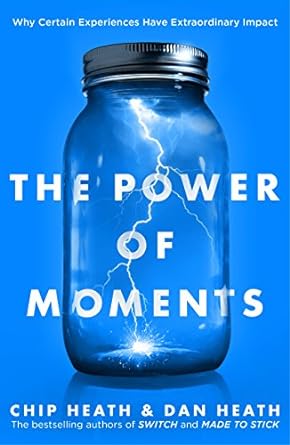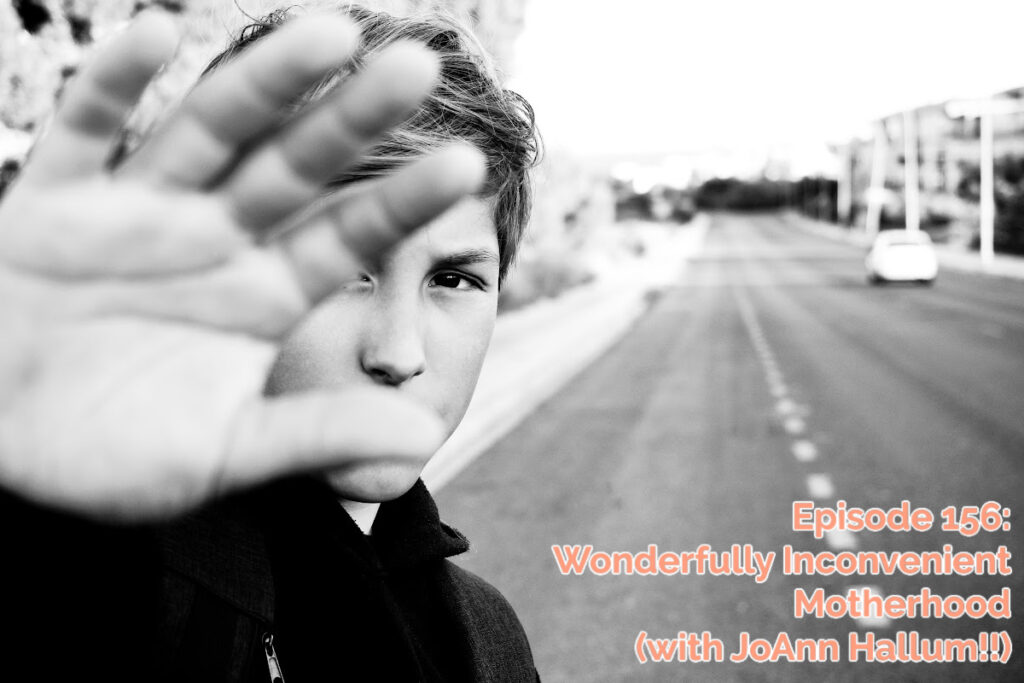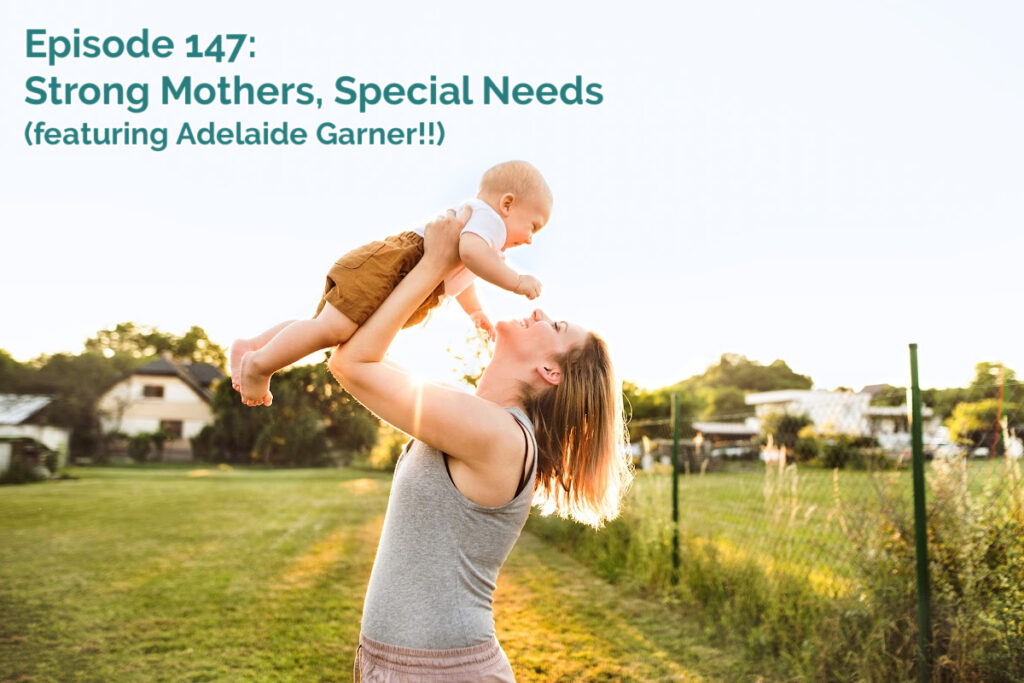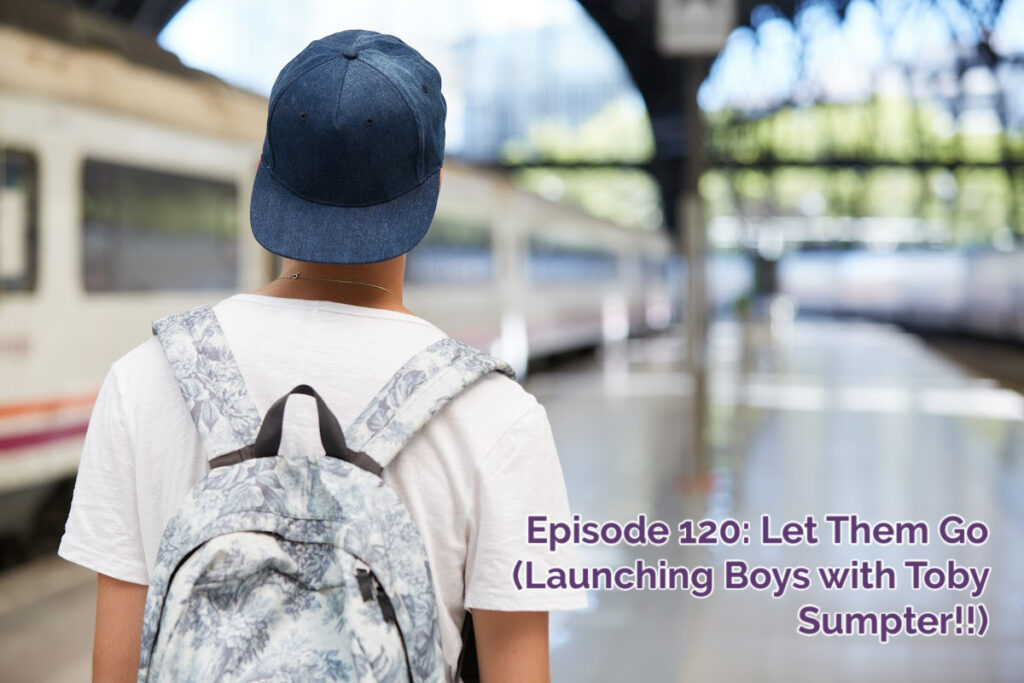SS #130 – Empathy is bad for your kids
The culture today tells us that we need to be empathetic to be kind and effective friends and parents, but what if today’s culture has no clue what’s actually healthy for people and relationships? What if most people get leadership and empathy all wrong?
Your kids don’t need your empathy. They need your wisdom and leadership and faithfulness.
This episode uses the chapter of The Fallacy of Empathy to talk about how moms can lead their children into maturity without giving in to emotional
Listen to the podcast:
TUNE IN:
Apple Podcasts | Spotify | Stitcher
The End of Empathy
Today’s Hosts and Source

Mystie Winckler, homeschooling mom of 5, with 2 graduates, did not rescue her kids at the park when they climbed too high.

Abby Wahl, homeschooling mom of 5 teens, with 2 graduates, has been strong and stable enough to teach her dyslexic kids to read.
“The colossal misunderstanding of our time is the assumption that insight will work with people who are unmotivated to change. If you want your child, spouse, client, or boss to shape up, stay connected while changing yourself rather than trying to fix them.”
Edwin Friendman, A Failure of Nerve
Scholé Every Day: What We’re Reading
On the Incarnation, Athanasius
The edition Mystie bought to read along with a friend includes an introduction by C.S. Lewis which he wrote for a different translation. Every sentence counts in this slim but dense volume.
The Iliad, Homer, translated by Emily Wilson
Abby preordered Emily Wilson’s translation of The Iliad and will be reading it with her sons later in the year.
The Bodies of Others: The New Authoritarians, COVID-19 and the War Against the Human, Naomi Wolf
Brandy is enjoying reading a political book about COVID from an intelligent person who has a different perspective and persuasion than herself. Wolf is a classical liberal feminist working through her experiences in D.C. from the Clinton administration to today.
Societies scale and dysfunction the same way
Families are small societies, but other communities are also societies that function on the same principles: churches, schools, business, towns, and nations. All these societies function and dysfunction in the same ways.
The state of dysfunction can be seen as a state of chronic anxiety. The effective leader that actually helps the person and society mature and progress does what it takes to move people from anxiety into productive action toward a mission.
What is this book about?
As lofty and noble as the concept of empathy may sound, and as well-intentioned as those may be who make it the linchpin idea of their theories…societal regression has too often perverted the use of empathy into a disguise for anxiety, a rationalization for the failure to define a position, and a power tool in the hands of the “sensitive.”
Edwin Friedman, A Failure of Nerve, p. 142
A Failure of Nerve explains the dysfunction of our current society so well while also demonstrating that what we try to do to help is making it worse not better.
The real root of his proposed solution isn’t a quick fix we can find and slap on, but simply taking responsibility for ourselves and becoming more mature ourselves.
Being a mature presence in the situation disarms and neutralizes the immaturity inherent in a dysfunctional situation.
Empathy disguises dysfunctional anxiety
When we’re nervous and uncomfortable, empathy is a good cover-up that promises to make us feel better together quickly.
However, when we jump to empathetic connection, we’re moving into dysfunction, not maturity. It is codependency, not healthy happy family life.
Symptoms of dysfunctional anxiety include boundary erosion, loss of playfulness, togetherness as a supreme value, totalism in thinking and relating, organizing around dysfunction, adapting to immaturity, loss of integrity, cynical pessimism, focus on safety rather than adventure, and a low pain threshold. The full chart is on pages 98-99.
Empathy refuses to hold a standard
Moms can sometimes think that saying, “I’ll support you no matter what you do or think,” but that is not actually love or helpful support.
Parents are supposed to draw the line to teach and disciple the kids. We aren’t there to be companions to all our kids’ folly. We’re charged with driving their folly far from them.
When moms go into the dark places with their kid, there is no longer a good and healthy place for the kids to come back to. Holding the line and maintaining a healthy home, gives a rebellious child no safe place to return to when he comes to his senses.
Don’t go join your kid in the pig sty if that’s where they are at.
Dialog is only possible when we can learn to distinguish feelings from opinions.
A Failure of Nerve, p. 142
Dialog is not affirmation. In dialog, both sides maintain their position and come to a better understanding by not taking discussion as personal attacks.
Empathy allows emotional manipulation
The sensitive in this context, as a negative thing, is not the legitimately
Empathy is not a source of wisdom or deeper spiritual insight. It can be a claim used to manipulate.
Mom can also be the sensitive one demanding others to be empathetic and cater to her needs and issues, she is hampering her kids’ development. In this situation, mom is not growing up, but being a child and keeping everyone at her immature level.
The focus on empathy rather than responsibility has contributed to a major misorientation in our society about the nature of what is toxic to life itself.
A Failure of Nerve, p. 143
Become a bold mother with us
Most of us did not receive the kind of education we’re trying to give our kids. Not only that, many of us don’t come from healthy Christian families, yet we find ourselves at home all day parenting and educating and we don’t feel equipped to be in charge at all.
Who are we to tell anyone what to do? We know we haven’t been responsible with our time, we know we are rarely stellar examples for our kids to imitate, we lack confidence to mother with authority. Life feels too hard and we don’t even know where to start.
We look for quick fixes – the right curriculum to plug in, the best parenting book with formulas to follow – but that’s not where we need to start.
That’s why, for our next mentorship study, we’re going to dive deep into authority, confidence, and leadership.
We aren’t going to tell you what to do. Instead, together, we’re going to read a few good books and discuss them so we can each begin applying them wherever we happen to be in our season of life.
If you want to grow and mature in your own self-control and level of responsibility, if you want to help your children become more responsible and be ready for adulthood, then we are here for you. Join us for GROW UP: Courage to be the adult in the room.
The GROW UP mentorship is included on the Sophie Plan of Sistership. We’ll start Monday, October 23rd with the introduction to A Failure of Nerve.
Become a Sophie today and be a courageous mother in a dysfunctional society.
Mentioned in the Episode
Listen to related episodes:
SS#156 – Wonderfully Inconvenient Motherhood
SS#147 – Strong Mothers, Special Needs (with Adelaide Garner!!)
SS #120 – Let Them Go: Parenting Teens (with Pastor Toby Sumpter!!)
SS #118 – Grit for Moms & Kids


